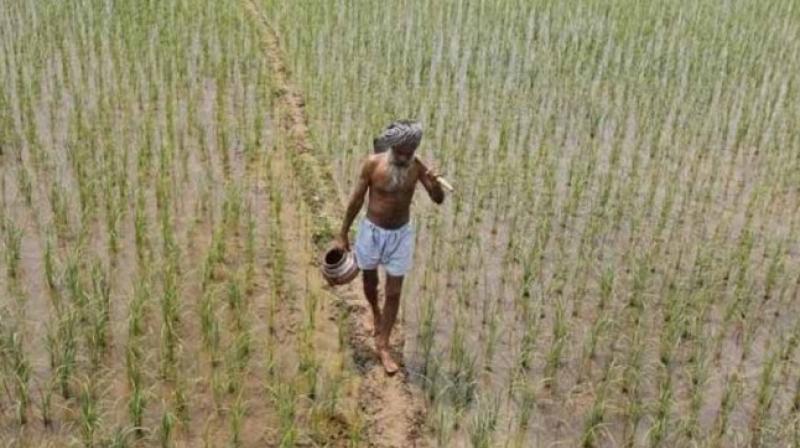Note ban: Spell out steps taken to ease problems in rural areas, SC tells Govt

New Delhi: The Supreme Court on Friday asked the Centre to spell out measures taken to ease the sufferings and inconvenience of people in rural areas, who are mostly dependent on co-operative banks, post-demonetisation.
A bench of Chief Justice T S Thakur and Justice D Y Chandrachud, while hearing a batch of pleas challenging various aspects of demonetisation, said all the parties should sit together and prepare a list of categories of cases which could be referred to high courts and those that could be heard by the apex court.
Attorney General Mukul Rohatgi, appearing for the Centre, said that the government is aware of the situation in co-operative banks which lack proper infrastructure and mechanism as compared to scheduled banks.
"Entire chapter in the additional affidavit filed by the Centre is dedicated to the issue of co-operative banks. It is not that we are not aware of the situation but these (the co-operative banks) lack proper facilities, mechanism and proper infrastructure as compared to scheduled banks," he said.
He said that the government has deliberately kept co-operative banks out of the drive as these did not have the expertise to detect fake currency.
Rohatgi said, "Several cases are filed each passing day in various high courts on various aspects post demonetisation and it is not possible to deal with cases simultaneously in Kerala, Kolkata, Jaipur and Mumbai... All these matter should be clubbed together and be referred to any one high court or the apex court should hear them."
Senior advocate P Chidambaram, appearing for co-operative banks, questioned the government's decision, saying that the rural economy is almost paralysed due to non-inclusion of co-operative banks.
Senior advocate Kapil Sibal, appearing for one of the petitioners, suggested that they will sit together and file the list of categories by Monday.
The bench then posted the hearing on the matter to December 5.
The court was hearing a batch of petitions challenging the constitutional validity of the decision to demonetise currency notes of Rs 1,000 and Rs 500 and the inconvenience faced by the common man due to it.
It had also asked the Attorney General to file an additional affidavit explaining the "schemes and steps" taken to ease the situation that has arisen due to demonetisation.
The Centre has recently moved the apex court seeking transfer of all the petitions pending in various high courts to either the Supreme Court or one of the high courts.
It had on November 24 filed an affidavit in the apex court on demonetisation and had said that the "bold move" would eradicate black money and slush funds operating since Independence which cast a "parallel economy" hitting the poor and the middle class.
It had also said the decision, on which total secrecy was maintained, would now help in proper implementation of the ambitious 'Jan Dhan Yojana' under which around 22 crore bank accounts for poor people have been opened.
Further, it had said that demonetisation is seen as a check on the real estate sector where prices get pushed up artificially, reducing the availability of affordable housing for the poor and the middle class.
The Centre in its additional affidavit had yesterday told the apex court that substantial amount of banned Rs 500 and Rs 1000 notes has been deposited in banks and the situation post demonetisation will ease out in next two-three weeks.
It justified the drive saying it is in the interest of the nation and would help in curbing black money and weeding out fake currency from the system. It said demonetisation would also curb terror activities in the country.
Highlighting the measures taken to normalise the situation after the November 8 demonetisation notification, the additional affidavit settled by the AG said the number of recalibrated ATMs is increasing day-by-day and the government is monitoring the grant given to farmers.
It had told the court that the government is also monitoring various exemptions given in the drive and that from today, petrol pumps will not take old Rs 500 currency notes as use of debit and credit cards is picking up pace.
On November 29, the apex court had agreed to hear pleas of 14 co-operative banks of Kerala for its nod to transact business like banks, and BJP spokesperson and advocate Ashwini Kumar Upadhyay seeking demonetisation of any currency note higher than Rs 100 denomination.
The plea filed by the co-operative banks have sought the apex court's nod to handle cash at par with state-run banks, claiming that the move did not allow the district co-operative banks to exchange old notes, which was discriminatory as they operated according to the RBI's guidelines.

